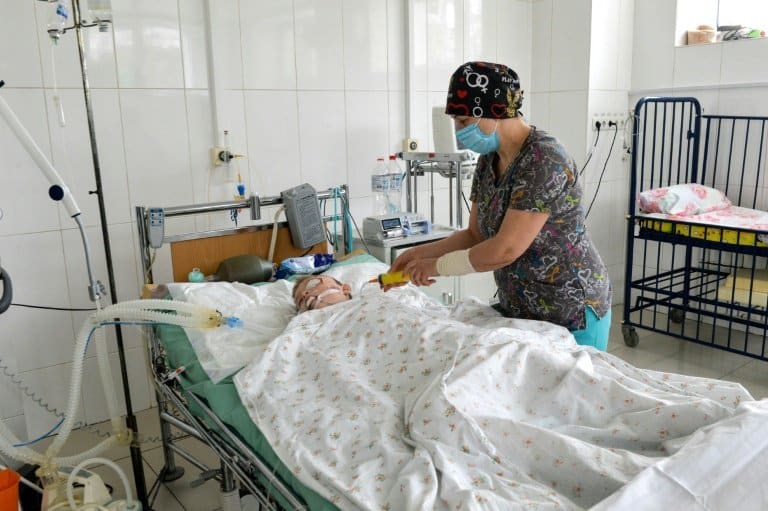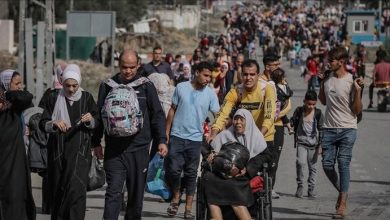In Ukraine hospital, war-wounded children make slow recovery

A plaster on his eye, eight-year-old Dima Kasyanov lies unconscious on a hospital bed in Ukraine’s second city Kharkiv after a Russian missile blasted through his home.
He was in his family flat when it hit on Monday, sending shrapnel shooting through his upper jaw and into the base of his neck, his doctor Oleksandre Dukhovsky says.
“For two days, we pumped ash out of his stomach. He still has cinders in his lungs,” says the head of the city’s paediatric neurosurgery centre.
Since Russia invaded its pro-Western neighbour on February 24, at least 78 children have been killed and more than 100 wounded, Ukraine’s ombudswoman Lyudmyla Denisova says.
The UN children’s agency UNICEF has warned the war threatens the lives and well-being of the country’s 7.5 million children.
More than one million children have fled the country, it says, among more than two million Ukrainians who have crossed into next-door countries to safety.
In the eastern city of Kharkiv near the Russian border, a nurse checks Dima’s vitals on a screen near his bed.
– ‘They shot at our car’ –
Outside the intensive care unit, his parents Sergei and Olena have managed to bring in medicine, as medical supplies dwindle nationwide.
“We live at the hospital. Our flat no longer exists,” says Olena.
In what remains of the family home, part of the floor has collapsed and the rest is covered in debris.
Water seeps through a hole in the ceiling, and bits of concrete dangle dangerously.
Several other apartments in the ten-storey Soviet-era building were also destroyed, an AFP journalist said.
Olena says she cannot wait to whisk her son away.
“We want to speak to the doctor to know when we can move him,” she says.
“Volunteers have suggested taking him to Germany to continue treating him there.”

Seven-year-old Vova suffered a brain injury after shots were fired at his family’s car / © AFP
Not far off in the same hospital, seven-year-old Vova has just been moved out of the intensive care unit, his head wrapped in medical gauze.
Dukhovsky, the doctor, says Vova was carried in with a brain lesion and had to be operated on immediately.
“It was really bad at first, but now he has started to speak and eat again,” he says.
By his bedside, the young boy’s father tends to him, giving him something to drink using a syringe.
“They shot at our car from a (Ukrainian) check-point,” he says.
“My wife was killed,” and Vova was badly wounded.
But “his three-year-old brother is OK. He’s here, in the basement” shelter, because the bombardment is relentless.





